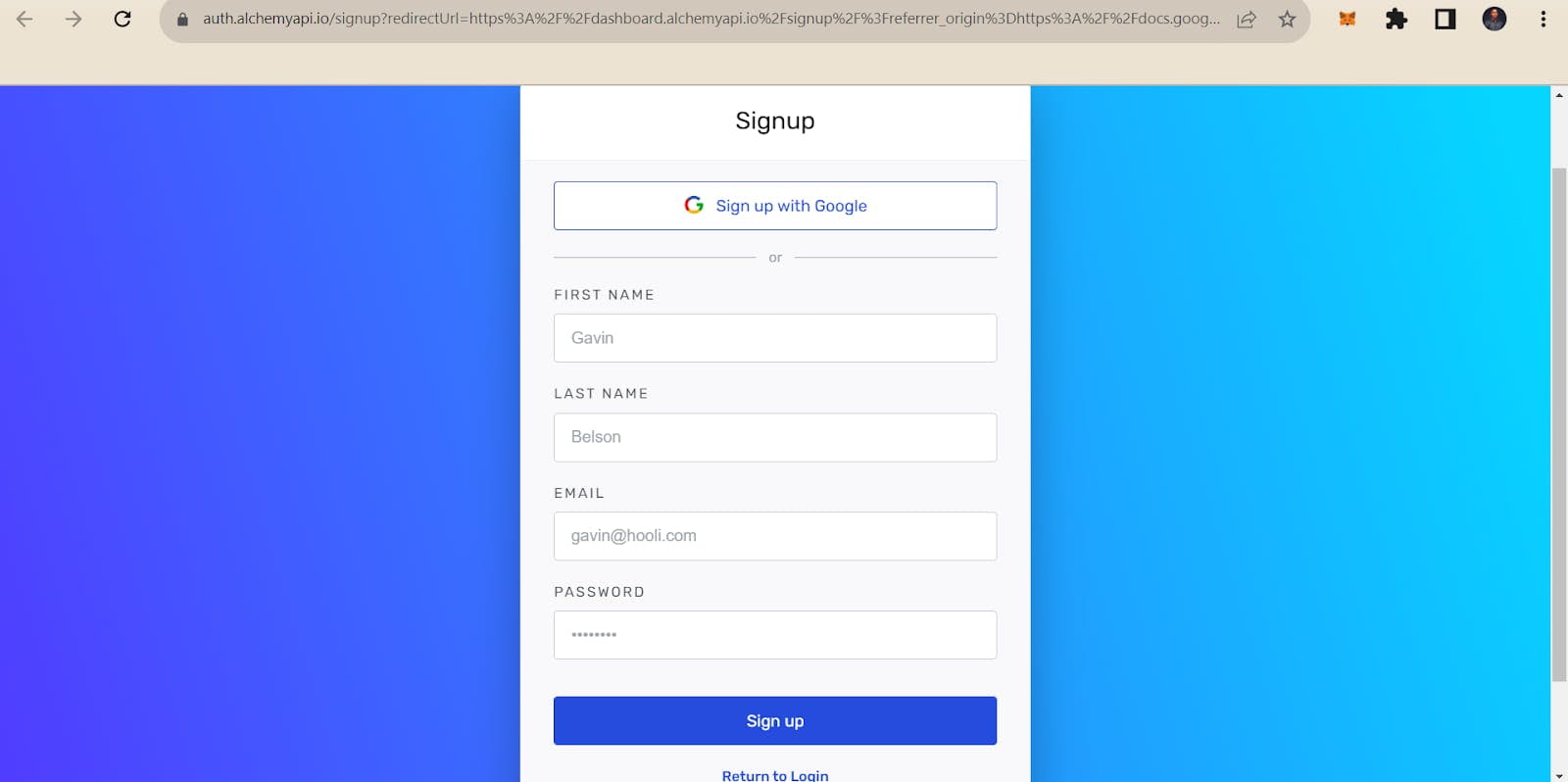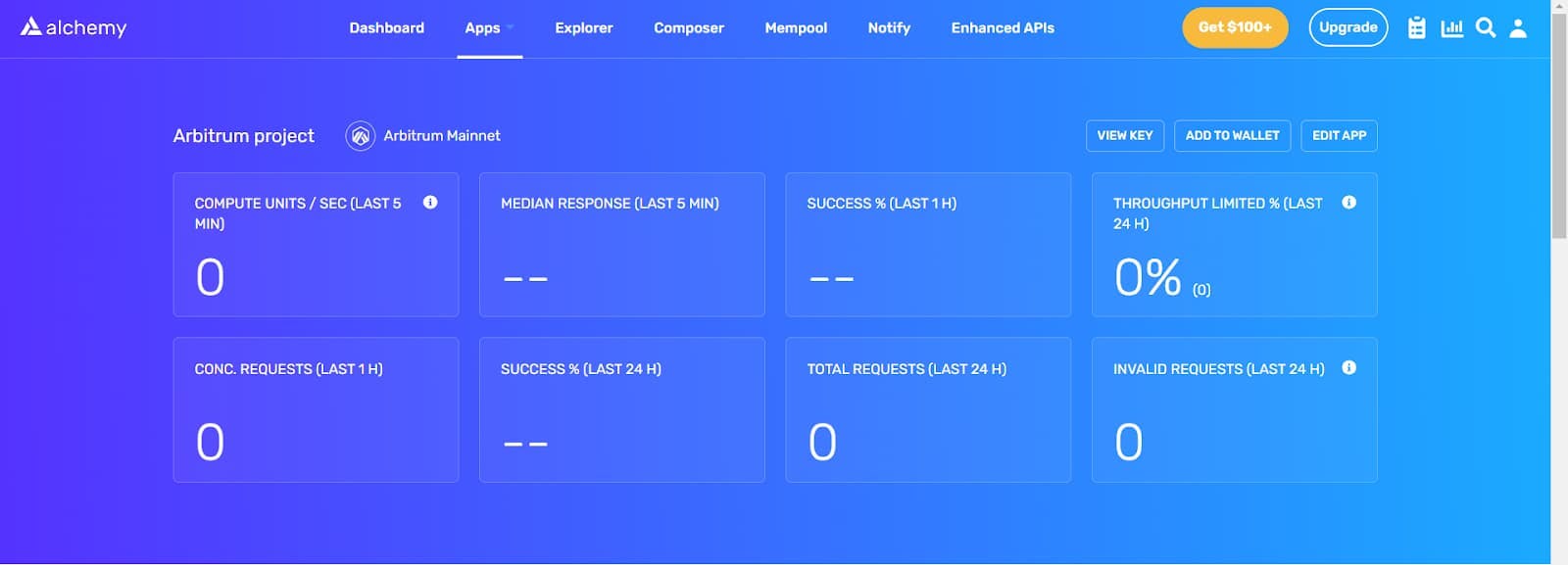
Arbitrum Nodes: Everything You Need to Know
Written by John Favole
Arbitrum is a layer 2 scaling solution for Ethereum that aims to solve Ethereum's scalability challenges of low transaction throughput and high transaction fees using optimistic rollups to maintain Ethereum's layer one security.
To start building Arbitrum applications, developers will need to connect to an Arbitrum node provider or setup their own Arbitrum node. In this guide, we will explain how to use Alchemy's infinitely scalable Arbitrum RPC node services, and how to get started running your own Arbitrum full node.
What is an Arbitrum node?
An Arbitrum node is a computer that serves as a point of connection within the Arbitrum blockchain, many of which are interdependent on one another.
To have a better understanding of Arbitrum nodes, it is essential to understand what nodes are, their roles in propagating transactions, and how blocks are validated.
Transactions are submitted to a global pool of pending transactions, and broadcast to other nodes on the network before they are arranged into blocks. To ensure fairness, nodes in a network have to agree (i.e. reach consensus) on the transactions that were included in a block before that block of transactions is added to the network. Nodes help in the approval or rejection of block proposals, and also store the historical transaction data of the network.
What is an Arbitrum node provider?
An Arbitrum node provider is a company that runs Arbitrum nodes, and enables both everyday users and developers to send and receive requests from the blockchain without having to set up and manage nodes on their own.
An Arbitrum node provider would have set up and maintained one or more Arbitrum nodes but would open it up for everyone to utilize it by creating some APIs or RPC. Put in another form, an Arbitrum node provider is in the business of giving Arbitrum-node-as-a-service.
Once the users get access to the Arbitrum API of an Alchemy node provider, they can interact with the Arbitrum blockchain in real-time.
While there are quite a handful of Arbitrum node providers, Alchemy is the leading provider. Later on in this guide, we will go over how you can tap into the Alchemy Arbitrum node.
What is the difference between running your own Arbitrum node and using an Arbitrum node provider?
Running your node requires you to install the requisite programs so your computer or device can be connected to Arbitrum mainnet and oversee the operating, while using a node provider manages the operations for you.
Thus, the main difference between running your own Arbitrum node and using an Arbitrum node provider is management in terms of setting the node up and maintaining it accordingly.
When you take advantage of an Arbitrum node provider, you have pushed the responsibility to a third party. Selecting a reliable node provider can take a bit of initial effort but after that, you don’t need to bother about the hardware to maintain it.
What are the challenges of running your own Arbitrum node?
The challenges of running your own Arbitrum node include needing proper storage space, a large lead time and the bandwidth required to manage a full-time node.
However, if you’re thinking of spinning your own node, it might appear to be a good idea at first. And of course, your own node has its benefits.
An in-house node means you are a direct stakeholder in maintaining the security and health of a particular chain. This, makes it tough for malicious actors to execute hacks on the chain. Secondly, you will have access to the state of the chain; the entire data of the network.
However, the challenges of running your own node are not always discussed, and we shall address them here.
1. Storage Space
You need a large space on your computer before you can run a full node. While there is no specific space required to run an Arbitrum node, the range is always between 200 GB to 300 GB among all blockchain networks.
2. Set-up Time
When you attempt to run a full node, your computer will have to download the ledger of the blockchain right from the first block that was mined up to the one mined a second ago. This always takes time; it may be days, weeks, or a month at worst depending on the chain and some other relative factors.
3. Node Management
Once you have eventually set up your full node, there is a need to manage it - and this is where the actual challenges lie. Running a full node is time-demanding, not only because you will have to be online for long hours, but you will also have to keep up with upgrading and debugging most of the time.
Now, let's consider how you can connect to an Arbitrum node on Alchemy — the foremost node provider in Web3.
How to Connect to an Arbitrum Node on Alchemy
Here is a step-by-step guide on how you can connect to an Arbitrum node using Alchemy as the node provider so you can start developing on Arbitrum:
Step 1. Sign Up for Alchemy
The first step you need to take is to go to the Alchemy website to sign-up and fill in a few details. If you had already signed up before, simply log in.

Step 2. Create a New Arbitrum App
Once you have logged in, go ahead to create an app on Alchemy. In this case, select the Arbitrum mainnet.

Step 3. Install the NPM package and Alchemy SDK
You will need the npm package moving forward if you do not have it already. Then, run this command to install the Alchemy SDK.
npm, install alchemy-SDKStep 4. Connect and Make Node Requests to the Arbitrum Mainnet
Using Ether.js or Web.js, you will need to import the Alchemy SDK and make a node request. Paste this command to import the SDK:
import { Network, Alchemy } from 'alchemy-sdk';Now, you should configure your object by inputting your Alchemy Arbitrum API key. To know your API key, go to your dashboard on Alchemy and click the view key on the app.

Run this command in your environment:
const settings = {
apiKey: ''5k6uBQE1ezfYaSom0qUVKLf0RzczKrIw',
network: Network.ARB_MAINNET,
};
const alchemy = new Alchemy(settings);
alchemy.core.getBlockNumber().then(console.log);Step 5. Node Request Analytics and Report
You will be able to monitor whether or not your requests were successful and the speed of execution — everything will be displayed on your dashboard.

How to Set up Your Own Arbitrum Full Node
Perhaps you want to set up your own Arbitrum full node and run it, you can take the steps below.
Step 1. Get the Arbitrum Node Docker Image
Before you can run an Arbitrum node, you need to get some dependencies and libraries which are contained in a docker image.
Step 2. Get An Ethereum Node RPC Endpoint
There are two options for you to get this; either you use an Arbitrum RPC endpoint provider or you build your own Ethereum node — which is another process entirely.
If you want to leverage an Arbitrum RPC node provider, you can use Alchemy.
--l1.url=<insert your RPC URL here>Step 3. Connect with the Arbitrum Mainnet
Once you have your dependencies set, you can run this code to make a node request to the Arbitrum main network:
docker run --rm -it -v /some/local/dir/arbitrum-mainnet/:/home/user/.arbitrum/mainnet -p 0.0.0.0:8547:8547At this point, don't be alarmed when you run these programs and they don't work on your computer. There is no standard way of running a full Arbitrum node at the moment.
The Offchain Labs, the team behind Arbitrum, have not yet released official detailed documentation on how to run their nodes.
Thus, your ability to successfully run the node depends on how compatible your device might be and how well you have mastered CLI.
Get Your Arbitrum Nodes Up and Running Today!
Running an Arbitrum full node is a time-consuming and financially-demanding activity that has no direct impact on what you’re working on as a developer. You need to acquire a device with the proper hardware requirements, wait for the complete blockchain ledger to download and then manage it on a day-to-day basis.
Most developers often choose to skip this tedious process and opt to enjoy the service of a node provider. Alchemy is the go-to node service provider that can help you set-up Arbitrum nodes within a few clicks! Get started with Alchemy today.

Related overviews
Looking for the best Hyperliquid RPC in 2026? This guide showcases the best providers.
Learn about the role of indexers and how they help you query onchain data.
Understand the differences between permissioned and permissionless chains and how to choose the right one.

Build blockchain magic
Alchemy combines the most powerful web3 developer products and tools with resources, community and legendary support.